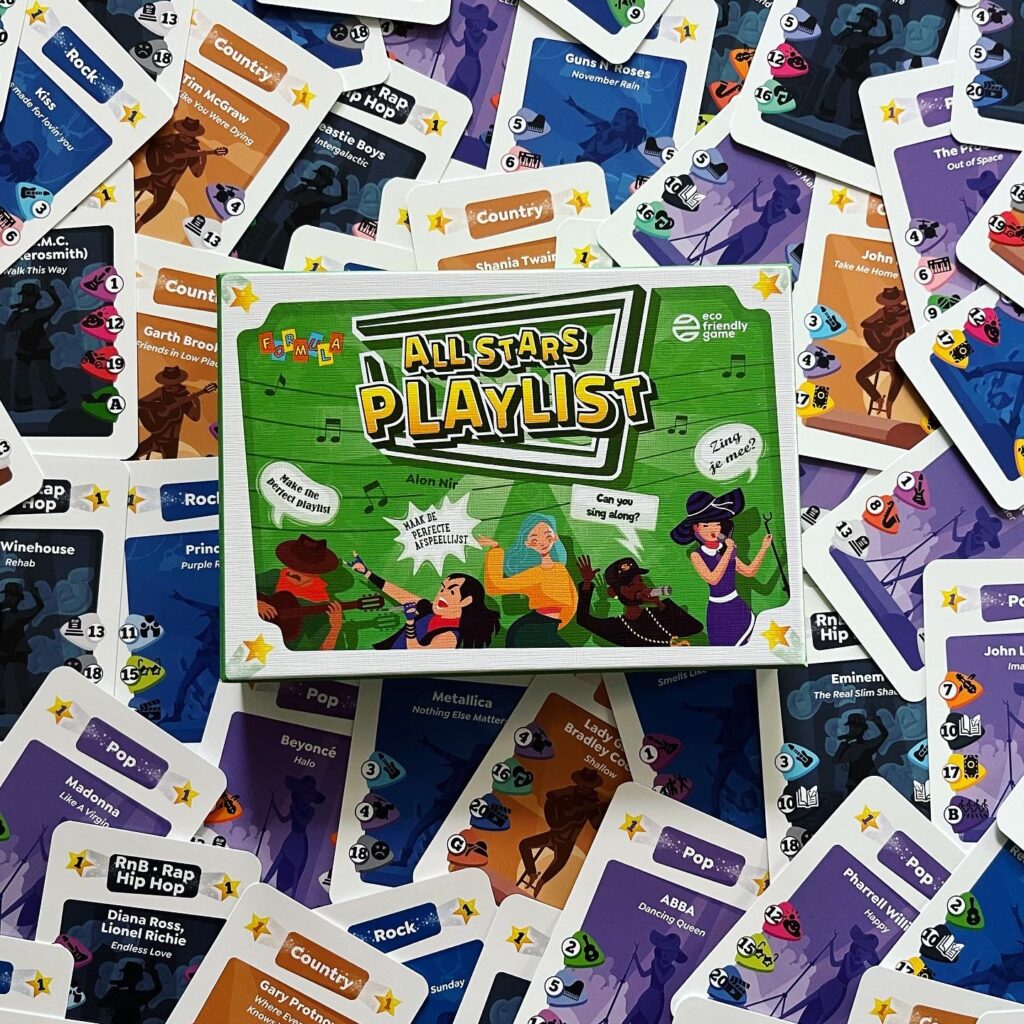Do you and your friends always argue about the choice of music at a party? John always has to let everyone enjoy the German schlager hits that he likes to play through a cheap and tinny Bluetooth speaker, Linda wants to introduce everyone to unknown bands and Jack always thinks he is at a hardstyle party. Everyone fights for the control of the speaker, music styles of others are not appreciated and the constant changing of songs and artists makes it seem as if DJ Track Record Zero is making a guest appearance. In All Stars Playlist, players can compile the perfect playlist while enjoying timeless and popular hits and, of course, sing along. The player with the best playlist gets to choose the music for the next party. Are you a DJEAH or a DJou rather not?

Setup and goal
All Stars Playlist is a fast and (depending on the players) musical card game in which players try to collect songs from the download list in their personal playlist. The right songs and combinations earn you the most points. On the table is a download list with five face-up music cards. These are songs that players can “download” to add to their own playlist. At the start of the game, each player receives two mission cards, two music cards and two action cards. The mission cards contain conditions that the player must fulfil to earn the amount of points shown. As soon as a player completes an assignment during the game, this player receives a new assignment card. As soon as a player has 15 cards in his or her playlist, the game ends and the points are counted.
Gameplay
During a turn, players add numbers from the download list to their hand twice. Players can then add as many cards from their hand to their playlist, but there are a few rules. For example, at least one characteristic of a song (symbols on the card) must match a characteristic of the song that was last placed in the playlist. Players must play their playlist seamlessly. The action cards allow players to influence the course of the game. If a player has three cards of the same genre in his or her playlist, this player receives a new action card.
At the end of their turn, the active player must sing or hum a part of the last song in their playlist. If the player fails to do so or sings the wrong song, the other players get a chance to steal a card. Players who prefer not to sing can choose to omit this musical element, but a large part of the fun of the game obviously depends on the singing (or attempted singing) of the other players. Without the musical element, the game is a fast and simple card game, but with the “karaoke element”, the game turns into a party game that is particularly aimed at fans of fast party games, where they can enjoy the background music in between, not having to keep their attention 100% on the game, but rather on the social aspect and the presence of their friends.








